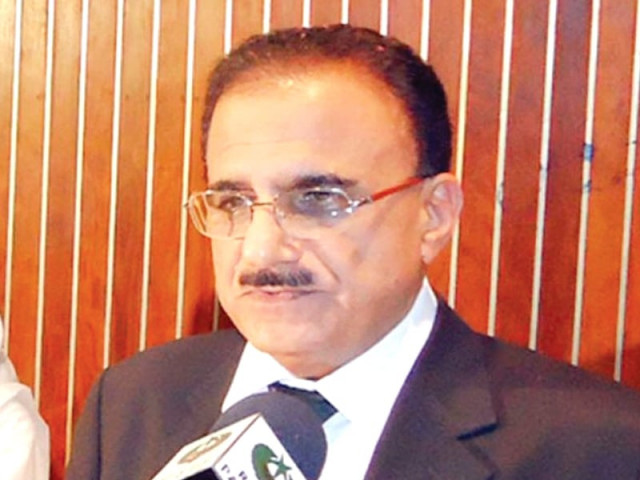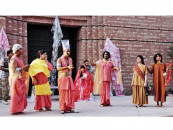SC judge who cared for the missing set to retire
Justice Dost Muhammad had refused oath under Musharraf’s PCO

PHOTO:FILE
Appointed in September 2002 as a PHC additional judge, Justice Khan became the PHC chief justice in November 2012. He was later elevated as a SC judge in January 2014.
Justice Khan is part of an special bench, head by Justice Asif Saeed Khosa, which has decided more than 5,000 criminal petitions and acquitted many death-row prisoners during the last three to four years.
The country’s legal fraternity appreciates the efforts of Justice Khosa and Justice Khan to provide speedy justice to death row inmates incarcerated for years. The special court decides all cases that are fixed for hearing in the daily cause list and there is no trend of adjournment. Even the lawyers believe that the special bench concerned has given relief to poor litigants during the last three years but such things have not been highlighted in the media.
The same bench has acquitted a number of convicts after their jail terms spanning 10 to 15 years. The acquittal rate is very high in the death references.
At present, the special bench is hearing criminal appeals that were filed in the last two years, and only a few thousand criminal petitions are pending before the apex court. However, the number of civil cases pending in courts has reached over 35,000.
SC judge backs accountability of judiciary, army
It is expected that the special bench will decide all criminal petitions this year and there will remain no pending case – a development that would be considered a big success for the apex court’s special members of the relevant bench.
Justice Khan was also part of the bench that disqualified former senator Nihal Hashmi and jailed him for one month. However, Justice Khan abstained and did not endorse the judgment against Hashmi.
During his service, the outgoing judge focussed more on matters related to human rights than the ones pertaining to parliamentarians. Justice Khan also raised questions about the role of undemocratic forces in the enforced disappearance cases.
Being the PHC chief justice, he passed several directions to trace out missing persons. Due to his efforts, the whereabouts of around 2,500 missing persons were traced out and 900 of them were shifted to different internment centres in 2013.
In 2015, the judge while issuing a dissenting note had also annulled the 21st constitutional amendment, which allowed the trial of civilians in military courts.
“As the Armed Forces are directly engaged in a fight with the Terrorists, any person captured in the course of combat, the investigator into the crime and the Judge presiding the Military Court would certainly belong to the Armed Forces and being party to the conflict therefore, they may be held to be Judges in their own cause. Thus, trial of such civilians by the Military Courts would certainly violate this inviolable universal principle of independent justice. On this account too, such trial would be ab-initio void,” said Justice Khan in his dissenting note in the 21st constitutional amendment case.
In December 2017, the judge while hearing a matter related to the National Accountability Bureau (NAB) had said that he supported the idea of bringing the judges and generals under the accountability law.
He said across-the-board accountability would be necessary and that he personally believed that judges and generals should be accountable like common citizens and there should be transparency in the process. A new law should be framed after consulting all stakeholders, he had remarked.
Last week, Justice Khan urged that the political parties should resolve their disputes in parliament instead of taking it to the courts as there were chances of a martial law when political disputes were not resolved through political means.
For strengthening the democratic process, he said, it was incumbent on the political forces to fix their issues through a political process rather than bringing each and every of their issue to the judiciary.
Justice Khan has a good sense of humour and, therefore, the atmosphere in his court proceedings is never tense.
Pakistan Bar Council vice chairman Kamran Murtaza said that Justice Khan would be remembered as a good judge as he always gave full opportunity of hearing to the lawyers.
Lawyer Chaudhry Faisal Hussain believes that Justice Khan was a light-hearted person during the proceedings but while delivering judgments he was very firm. The lawyers said that Justice Khan did not compromise on his independence; therefore, he penned down dissenting notes in a number of verdicts.



















COMMENTS
Comments are moderated and generally will be posted if they are on-topic and not abusive.
For more information, please see our Comments FAQ